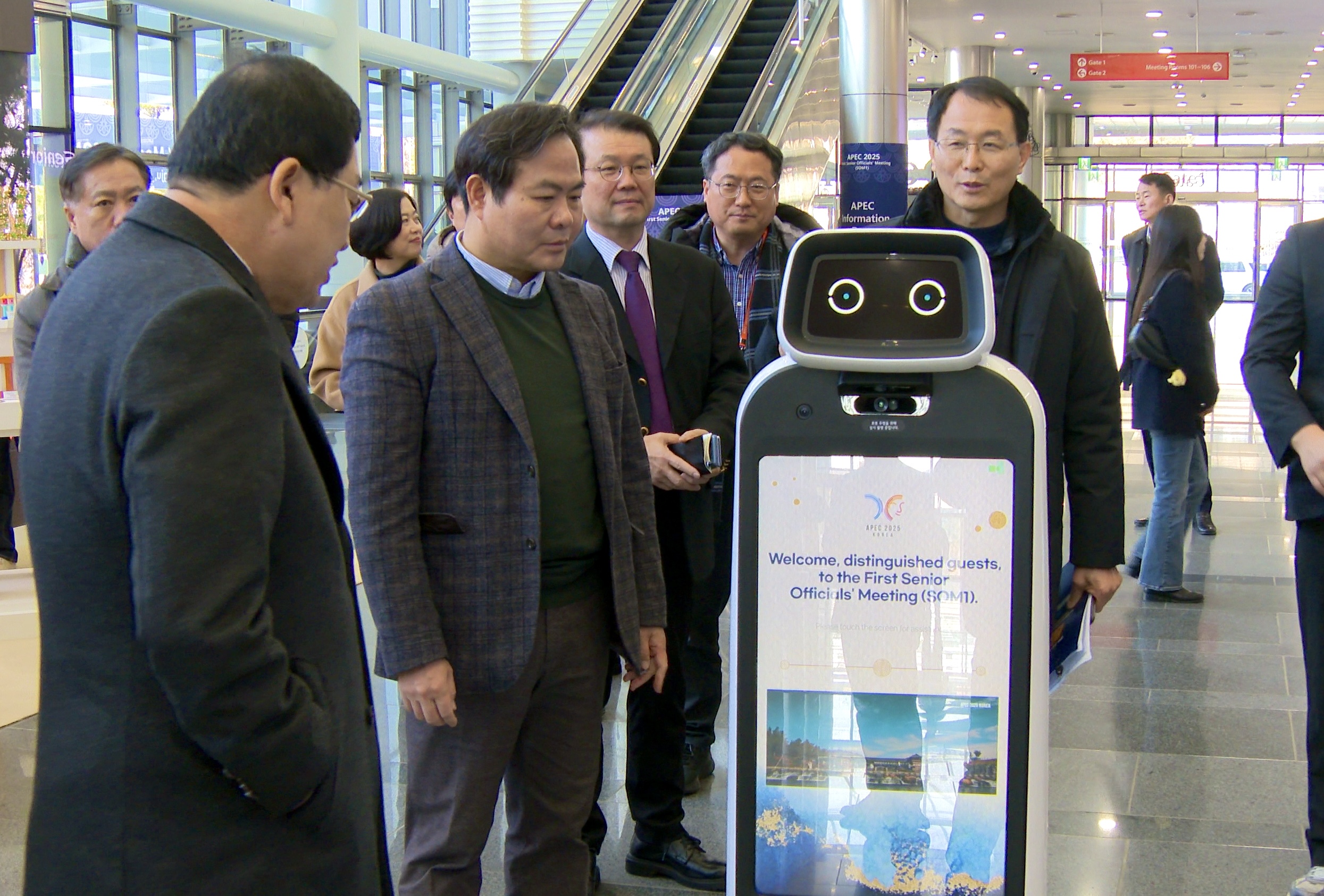
Gyeongju Mayor Joo Nak-young (left) and Gyeongsangbuk-do Province's Vice Gov. of Administrative Affairs Kim Hak-hong (second from left) on Feb. 22 inspect a guide robot based on artificial intelligence at Hwabaek International Convention Center in Gyeongju, Gyeongsangbuk-do Province. (Gyeongsangbuk-do Province)
By Lee Dasom
The Ministry of Science and ICT on Feb. 23 said it will hold the general assembly of the Asia-Pacific Economic Cooperation's (APEC) Policy Partnership on Science, Technology and Innovation (PPSTI) from Feb. 24-26 at Hwabaek International Convention Center in Gyeongju, Gyeongsangbuk-do Province.
The PPSTI is a working-level policy body for discussing agenda on science and technology innovation and agenda measures in the Asia-Pacific region. Some 100 participants include delegates from 19 APEC member states such as the U.S., Japan and China and experts from the private sector, academia and international organizations.
Under the theme "Empowering Innovation and Digitalization for Inclusive, Sustainable, and Resilient Economic Growth," the event will discuss three key tasks: augmentation of scientific and technical innovation capacity; higher cooperation in research and development; and improving the social and economic effects of emerging technologies.
On the event's opening day of Feb. 24, a key agenda item is a strategy to promote a network for exchanges of outstanding scientists in Korea and the region. Other topics include this year's key tasks such as boosting science and technology capacity and open science.
A policy dialogue on Feb. 25 will seek APEC cooperation in raising the social and economic utilization of emerging technologies such as artificial intelligence (AI), cutting-edge life science and quantum computing as well achieve inclusive growth.
Other agenda include the planned APEC Science Prize for Innovation, Research and Education (ASPIRE), which goes to young scientists who actively collaborate with APEC members and show outstanding research results.
On the final day of the event on Feb. 26, delegates from APEC member states will visit Hyundai Motor's factory in Ulsan and Ulsan National Institute of Science and Technology to experience the country's human resource development and exchange for science and technology as well as industrial sites.
"Interactions and networking among scientists are pivotal factors in innovation," said Hwang Sung-hoon, director general of the ministry's International Cooperation Bureau. "We will actively cooperate to raise research capacity in the APEC region and enable science and technology to contribute to the resolution of global challenges and tasks."
Through the 70th regular session of the APEC Telecommunications and Information Working Group next month, ministerial meeting on digital and AI and Digital Week slated for August, and exchange events in science and technology, the ministry plans to stimulate cooperation in APEC in science and technology, digital and AI.
dlektha0319@korea.kr